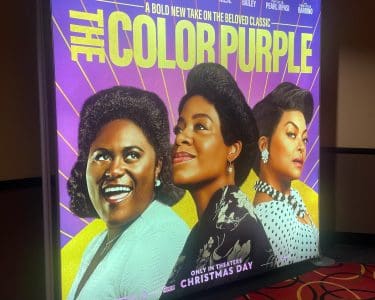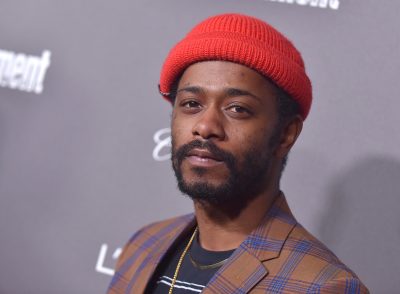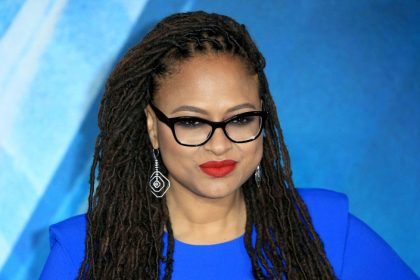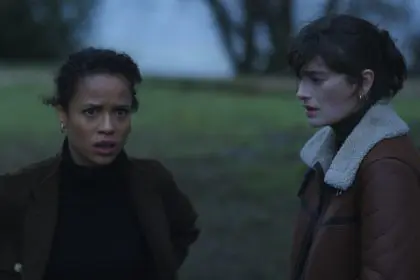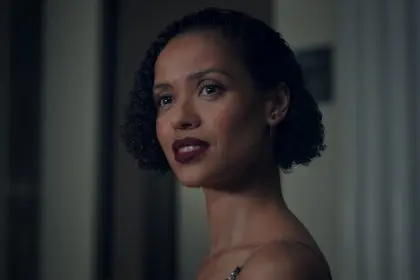Fledgling pop star Noni (Gugu Mbatha-Raw) is near the release of her debut album and has a string of hit singles that she’s recorded with her pseudo-boyfriend Kid Culprit (rapper Machine Gun Kelly). But she’s a tortured soul, and a drunken night on a balcony injects a noble, young police officer (Nate Parker) into her troubled life. He saves her life, and in doing so, finds himself a hero and fixture on gossip sites. But the connection between them grows into something more long-lasting. She’s unsure of herself and the world she inhabits, he seems to offer stability, compassion and love. Beyond the Lights opens with heightened melodrama and most of the film feels as overstated as these early scenes.
As Noni, Mbatha-Raw manages to channel the seductress image of many contemporary singers such as Rihanna and Katy Perry; as well as the awkward uncertainty of a young woman who isn’t sure that this lifestyle is what she wants. The 31-year old British actress has seen her star rising this year, following her well-received turn in the period drama Belle — but, as with that film, she finds herself hog-tied by plot contrivances and heavy-handed storytelling. Some of her best scenes are with Minnie Driver, who plays her ambitious-but-controlling mother; and the actress has clear star power.
Parker’s young police officer Kaz Nicole is a bit more mysterious; as a character, Kaz is very close to under-written, despite his dramatic thrust into Noni’s life and the weighty backstory involving his father (Danny Glover) and political ambitions. But the actor’s performance gives Officer Nicole enough conflict to steer clear of being a cookie-cutter “knight in shining armor”; he makes Kaz’s insecurities all-too-relatable. But the film doesn’t do a great job of fleshing out Kaz’s motivations; is he an everyman unsure of the celebrity spotlight or a political upstart leery of being associated with a sexy starlet? This movie doesn’t seem to really know.
Gina Prince-Bythewood’s Beyond the Lights wants to say something profound about pop stardom and identity, but it winds up mired in melodrama and cliches. There is a palatable chemistry between Mbatha-Raw and Parker, and both leads give strong performances, but the film can’t seem to avoid steering into movie-of-the-week territory. Prince-Bythewood seems adamant about spelling everything out for the audience (a scene where Noni smashes the photos and plaques that line her mansion’s walls is especially gratuitous and unnecessary). The writer-director takes aim at everything from stage mothers to the way the music industry objectifies young female artists; and sometimes she hits the mark. Which makes Beyond the Lights an enjoyable film, albeit a sometimes-frustrating one.



